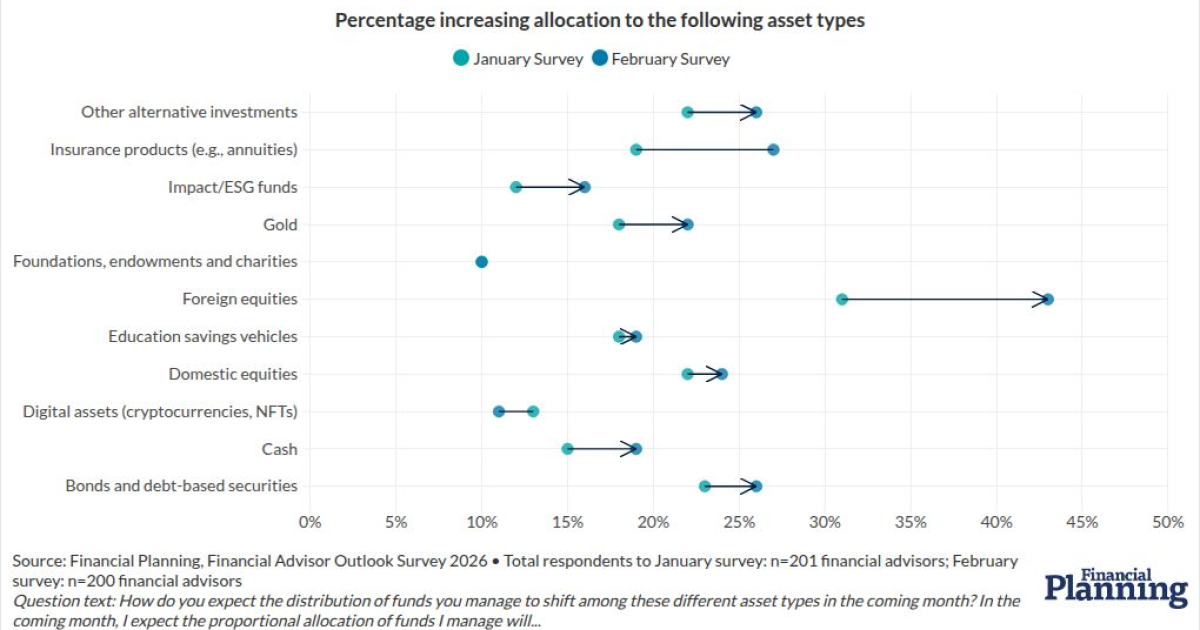[Inflation and the Family: Monetary Policy’s Impact on Household Life by Jeffrey L. Degner. (Palgrave Macmillan Cham, 2025; 242 pp.)]
When it comes to any book, especially scholarship, the central concept and word to keep in mind is contribution. What contribution does this work make? To say it another way, what does this book uniquely say or explore that no other work articulates in quite the same way? Good research and writing examines what has currently been said, spots “gaps,” and then seeks to develop solid previous work and/or fill those gaps.
In this work, Jeffrey Degner explores and seeks to make explicit what other economists and social scientists have indicated, suggested, hinted at, or did not have the space or scope to explore—the connection between monetary policy and its consequential effects on the family.
We ought to be reminded that economics is based on human action or praxeology, and a key aspect of economics—of which Mises wrote frequently—is social cooperation. Peaceful and voluntary social cooperation are the basis for society, in fact, human interaction is society. Therefore, marriage and family—the original, definitional basis of social cooperation—and how it is impacted, not just by state interventions in general, but by modern inflationary monetary policy in particular, is of paramount importance.
The Fed, through its euphemistic “monetary policy,” claims that it provides economic stability. To those familiar with Austrian theory of the business cycle—and those who just glance at the business cycles not prevented over the last century—this claim is laughable because the truth is the exact opposite. The artificial expansion of money and credit via the Fed destabilizes the economy. Further, as Jeffrey Degner argues in Inflation and the Family, monetary policy also destabilizes marriage and the family.
The Gaps—Monetary Policy, Marriage, and the Family
Degner would admit, unashamedly, that his work develops upon the valuable previous work of others, economists and otherwise, to identify “gaps,” develop research that moves toward filling those gaps, and raises new opportunities for research. Inflation and the Family identifies a key—and surprisingly unexplored—research focus. Recognizing the significant changes within the family and reasons provided by both by economists and other social scientists, there was something missing:
[The] salient call to consider the impact that “economic change” brings to households has been met with many sincere and fruitful efforts. However, a brief perusal of several leading authors who have made significant contributions to the theory of family economics reveals a general absence of one of the most important macroeconomic variables that impacts every household, firm, and even the central government—monetary policy. (p. 7, emphasis in original)
In studying economics, family, and the impact of economics on family, is it true that no one has examined how inflationary monetary policy and its consequences have impacted the family? Thankfully, this connection is now made explicit. Degner writes, “Due to the lack of this connection in the existing literature on the family, this work contends that the role that monetary policy plays in changing economic conditions, and thus in changing family life, is worthy of consideration” (p. 8).
The aim of the book is “to show that inflationary monetary interventions lead to the institutions of an inflation culture” which is characterized by “rising indebtedness, increases in wealth inequality, and augmented moral hazard” (p. 8). It is further argued that “incentives and habits of the inflation culture” contribute to certain changes in family life empirically observed (p. 9).
On the Shoulders of Giants
Inflation and the Family not only necessarily fills a research gap, but answers a challenge and develops an almost 300-year-old connection between inflation and its household impact.
Early in the book (p. 9, n20), Degner points out his attempt to answer a research interest raised by Guido Hülsmann, “In his 2008 ‘The Ethics of Money Production,’ Hülsmann pointed out (p. 191) that the pursuit of the potentially destructive aspects of fiat money inflation should be carried on by other scholars. This book is an attempt to fulfill that challenge.” Indeed, Degner cites Hülsmann as claiming that inflation “slowly but assuredly destroys the family” but that this analysis would have to be left “for another time, or for other scholars” (Hülsmann, as quoted in Degner, p. 86, n15). In his own words, Degner furthers this research interest raised by Hülsmann,
With respect to household decision-making and patterns and behaviors, it is notable that the imposition of an inflation culture may alter both the structures and behaviors of households. Put another way, “government’s fiat makes inflation perennial, and as a result we observe the formation of inflation-specific institutions and habits. Thus, fiat inflation leaves a characteristic cultural and spiritual stain on human society” (Hülsmann 2008, 175, emphasis in the original). (p. 119)
In more distant economic history, Degner employs the monetary theory of Richard Cantillon and traces how the Cantillon effect impacts families. Interestingly, in originally formulating and illustrating his monetary theory, Degner insightfully observes that Cantillon himself chose the family to demonstrate the consequences of Cantillon effects. In a sense, this book may be said to attempt to trace the Cantillon effects of central bank monetary policy through to consequences on the culture, particularly marriage and children. Degner himself says, “To put it mildly, [Cantillon’s] work from the 1730s was prescient and anticipates the recent emergence of literature on the heterogeneous impact of monetary policy by nearly three centuries” (p. 117). Further,
As the overall goal of this book is to establish how changes in money supply present a new set of incentives to every household, this macroeconomic variable isn’t randomly selected. In fact, this is merely an extension of a project established in the 1700s by Richard Cantillon that began to address the relationship between money production, the resulting new distribution of real income, and family life, decisions, and structure (Saucier and Thornton 2010). Although this model is over two centuries old, it still rings true today both theoretically and empirically,… (p. 86, emphasis added)
While applying Cantillon’s framework is “highly relevant” to the link between monetary inflation and alterations in family life now seems obvious, “A thorough search for extensions of [Cantillon’s] work into current family economics is completely absent at worst and deeply neglected at best” (p. 95). What is particularly relevant for this study are both the negative and positive effects of new monetary injections,
In [Cantillon’s monetary theory], he discovered that growth in a money supply—even under a commodity-based money regime—produces positive wealth effects for the early recipients of new expenditures. Conversely, there are eventually negative wealth effects for the later recipients of new money. This outcome has been called the Cantillon Effect. (p. 94, emphasis in original)
Other economists, including Mises, drew on Cantillon’s analysis and furthered it, but even Mises focused on more society-wide economic impacts. Cantillon “places a clearer emphasis on the benefits and harm brought to certain households” (p. 95). Within a few short paragraphs, Cantillon established how a growing money supply impacts “wealth distribution, household-level decisions, increasing income inequality, labor market changes, rental prices, rising consumer prices, and international trade” (p. 96). But Cantillon dealt with the theoretical consequences of a one-time injection of hard money. Extrapolating further, imagine the effects of continual, semi-costless, artificial increases to the money supply.
Cantillon himself drew the “connections between the monetary base and family life,” therefore, it is only natural that his approach ought to be deployed in exploring family economics (p. 97). While Cantillon used the effects on family life to illustrate monetary theory, Degner lingers to employ sound monetary theory to trace out the effects on the family.
Degner’s Contributions
The book successfully blends sound economic theory and robust empirical literature concerning alterations in the family. What is new, and surprisingly unexplored, is the linkage between monetary policy and alterations in marriage and family. Thus, the book seeks to answer a simple research question: “How and to what extent does monetary policy contribute to the institutions of the inflation culture and how do the habits that it produces alter family formation, fertility, and divorce?” (p. 10). Early in the book (pp. 9-10), a step-by-step justification for this research question is provided:
Tremendous change in family behavior and structure has occurred in the US in the past six decades.The most dramatic changes in family structure and behavior have occurred in lower-income households.Several proposed economic causes for altered family life have been offered by economists.Many of these proposed causes for family change are known consequences of inflationary monetary policy.The integration of monetary policy as a partial explanatory variable for family change is non-existent.Therefore, a study of how inflationary monetary policy creates an inflation culture, with a set of habits and institutions that alters household structures is warranted. (pp. 9-10, emphasis in original)
The book expects to find and arguably finds “altered incentives, institutions, and habits of the inflation culture” (p. 93). Further,
As the reader will observe, this economic environment gives rise to the institutionalization of debt culture, rising class differentials, and an enhancement of moral hazard, rationality traps, and collective corruption. (p. 115, emphasis in original)
Unfortunately, space does not permit for the extrapolation of all the interesting aspects of this book, however, it is necessary to explore some of the main findings, as well as some of the more particular interesting observations. In short, what are some ways that inflation affects marriage and the family?
In Table 5.1 (p. 127), Degner outlines what he calls potential implications for family life habits within an inflation culture, namely, debt culture, increased inequality, and increased moral hazard. Within these categories, here are just some of the areas monetary inflation impacts regarding marriage, fertility, child-rearing, family dysfunction, and divorce: increased delays in marriage, decreased marriageability, increased haste to acquire debt, decreased financial independence, decreased marriage among lower-income individuals, increased cohabitation, decreased attention to conventional morals, increased dependence on the welfare state, delays in childbearing, decreased number of children, increased childlessness, increased domestic violence, increased divorce, increased likelihood of abortion, and many more. Some are seemingly obvious, like increased likelihood to divorce due to financial strain; others are more unexpected, like increased likelihood of childhood trauma and even worsened nutrition.
Another theme—also emphasized by the Cantillon effect—is that monetary injections create net winners and losers. Interestingly, increasing housing costs have an almost opposite impact on marriage among homeowners versus non-homeowners. While non-homeowners are hurt by inflation relative to marriage, especially in housing, “housing price increases in the US tend to help currently married homeowners and stabilize their existing marriages by a significant margin (Klein 2017)” (p. 71, emphasis in original). Or, “Put another way, rising home prices may tend to stabilize some traditional families, while driving others to form later or perhaps, never at all” (p. 71). In a fascinating footnote (p. 54, n33), Degner points out an empirical observation regarding the politically-imposed inequality caused by monetary policy, “Importantly, the St. Louis Federal Reserve itself has indicated that for every $1 Billion in M3 produced a simple linear regression shows a $4.6 Billion increase in the total net worth of the top 10% of wealth holders in the US.”
Degner borrows a poignant word from Josef Pieper—proletarianization—that describes a general movement of a society where life is increasingly consumed by “total work” (p. 31, n7, etc.). While rejecting fallacious economic and philosophical categories of Marxism, Degner demonstrates the true proletarianization of society. Via inflationary monetary policy and the political means, wealth and purchasing power are expropriated to the beneficiary caste at the expense of others who bear the costs, including increased inequality. This tends to create different incentives for different castes when it comes to marriage and family formation.
Overall, the book is clearly-written, employs sound economic theory, provides a wealth of empirical information, makes a unique contribution to the literature, and opens several new research opportunities for other scholars.



























